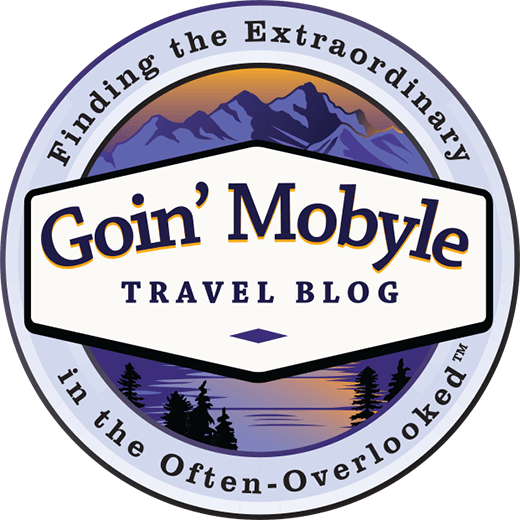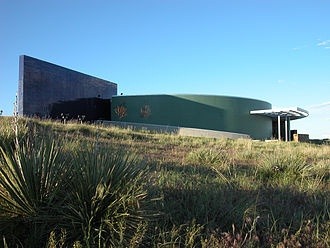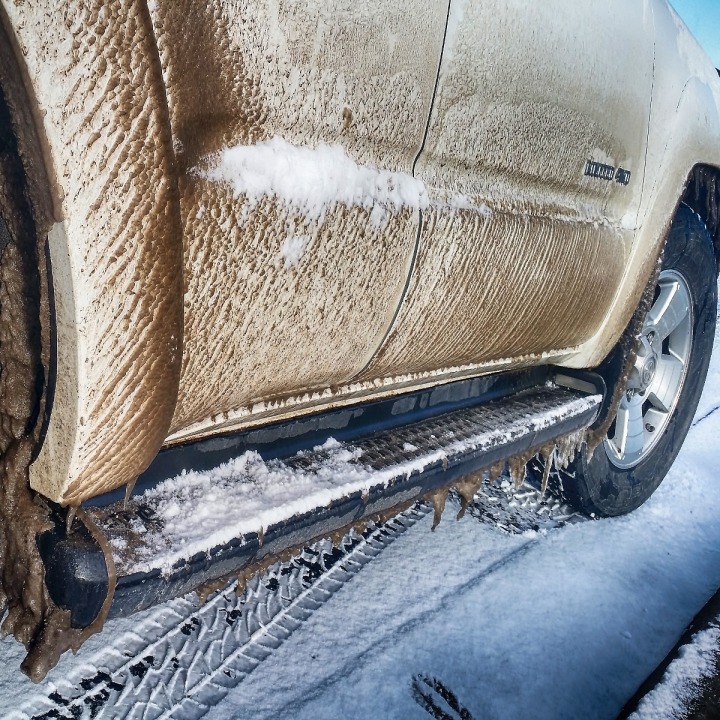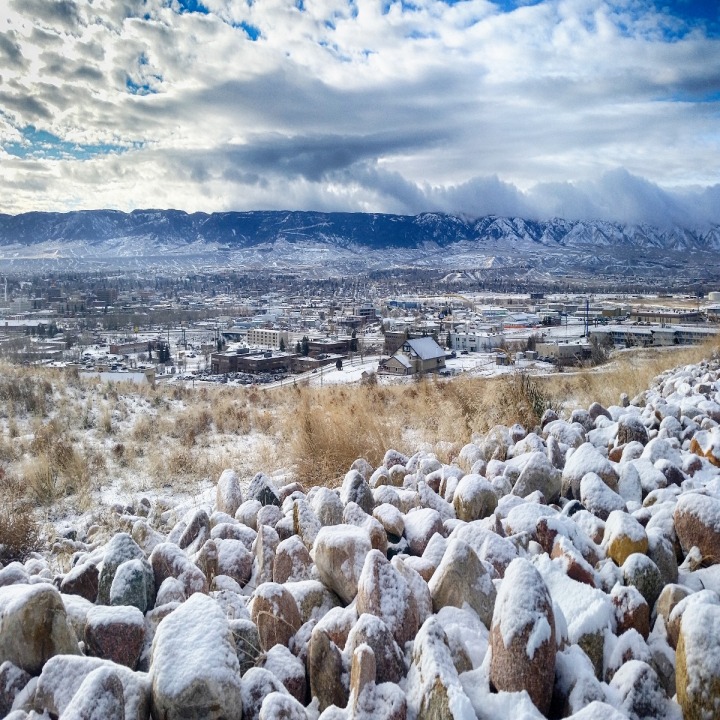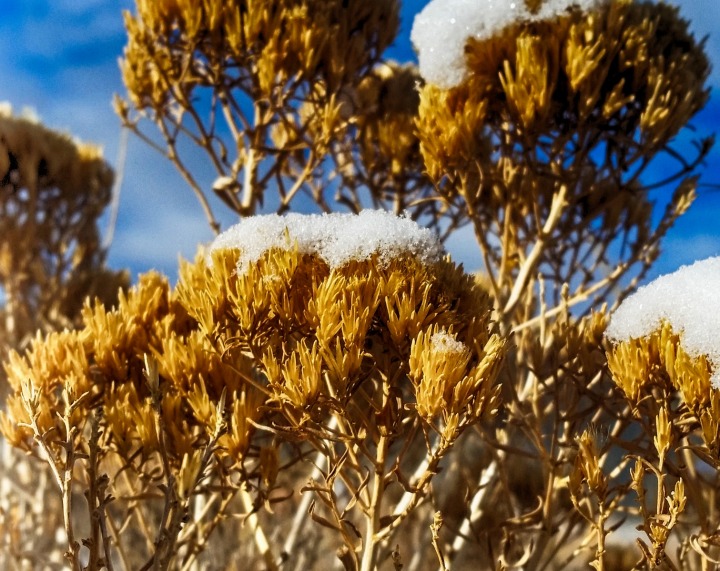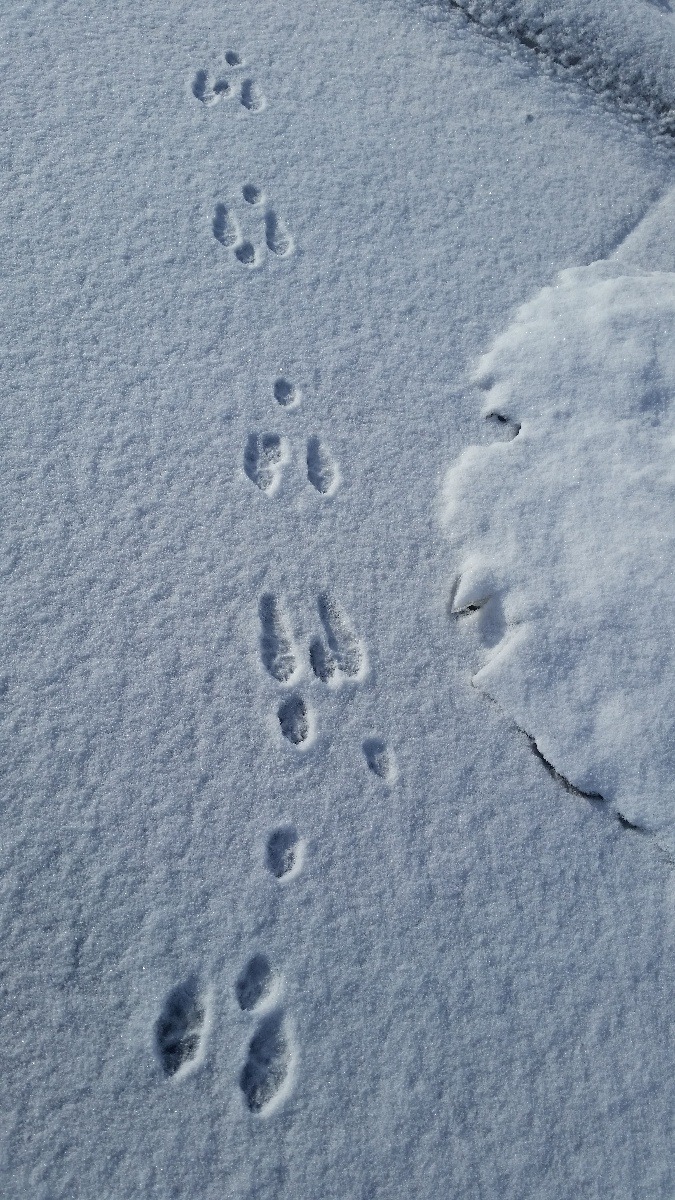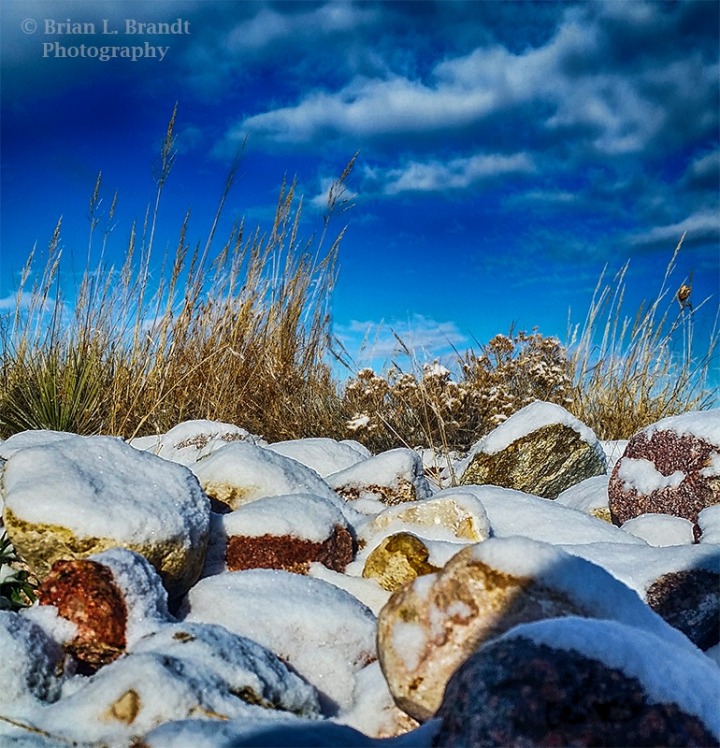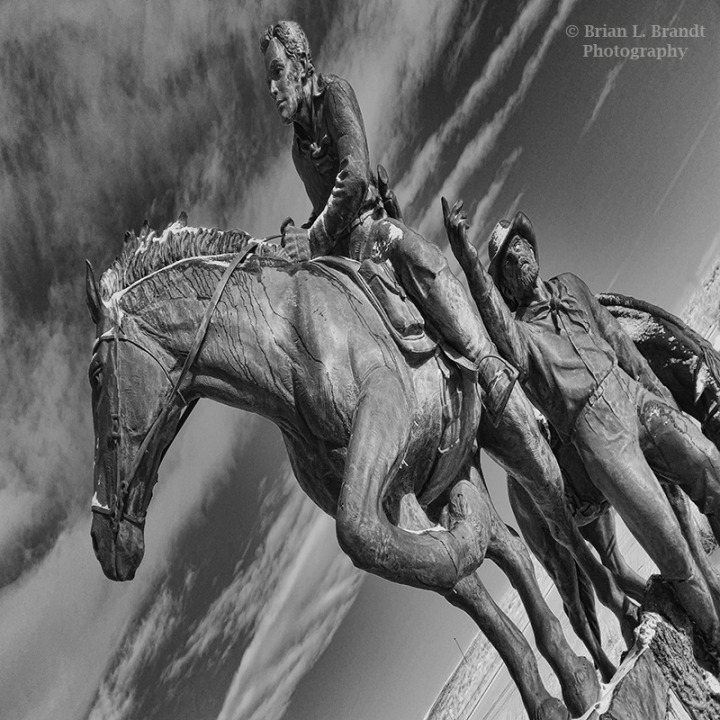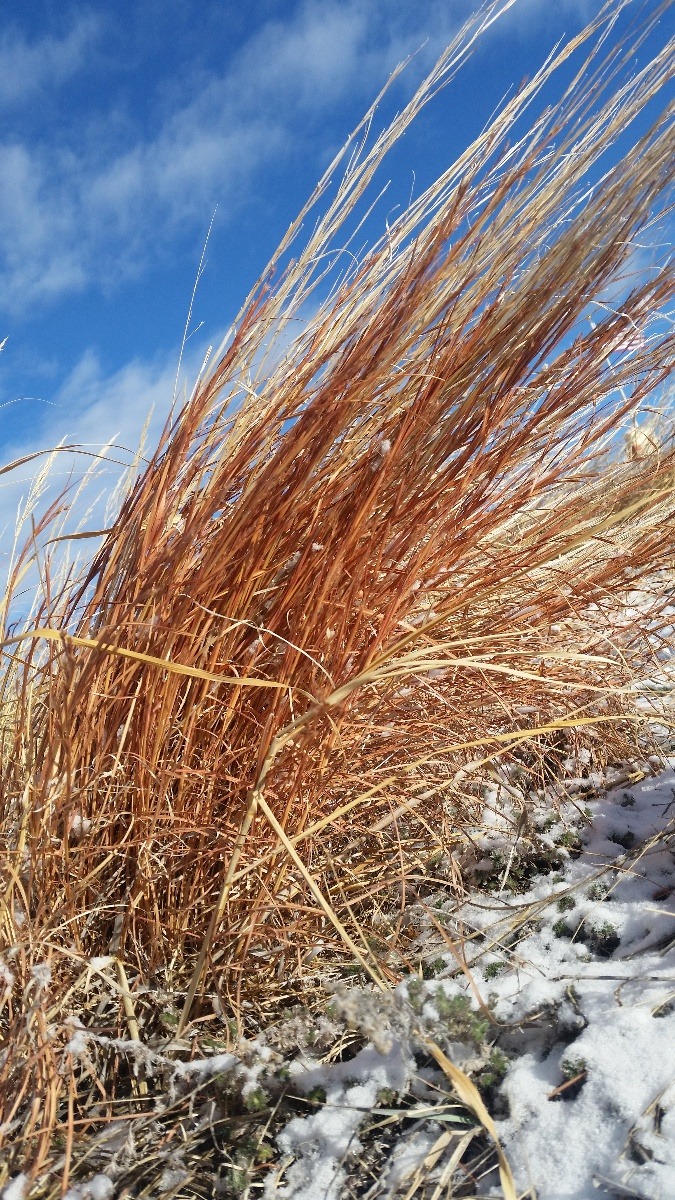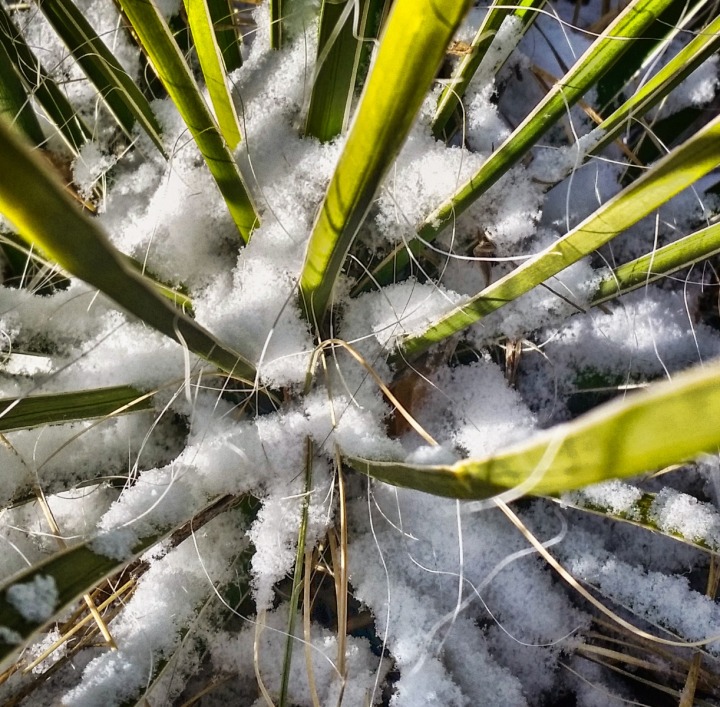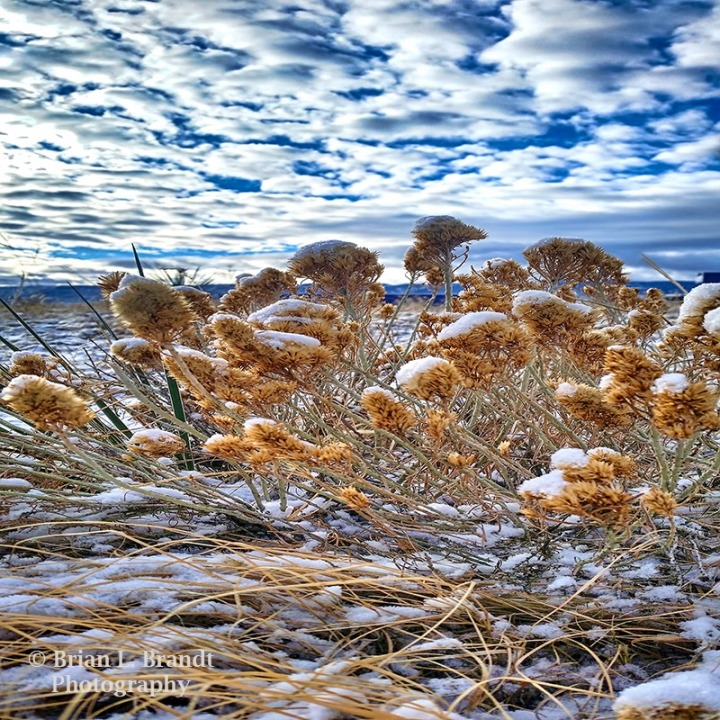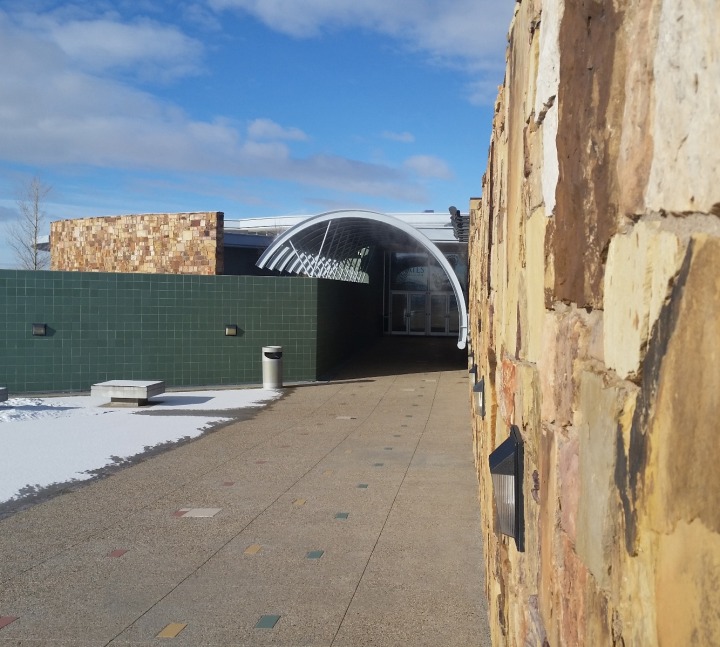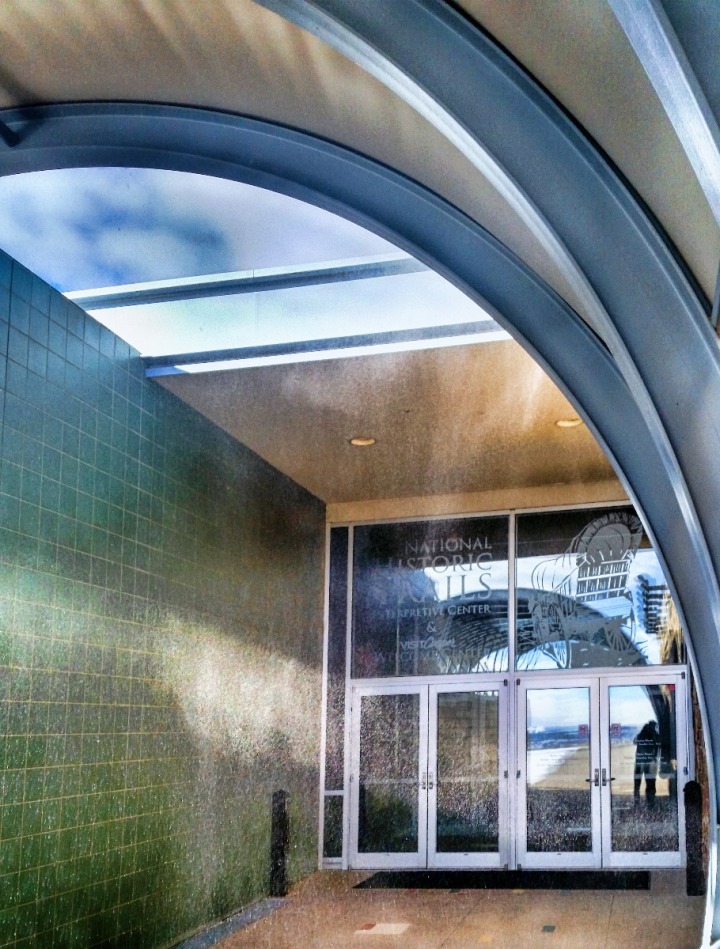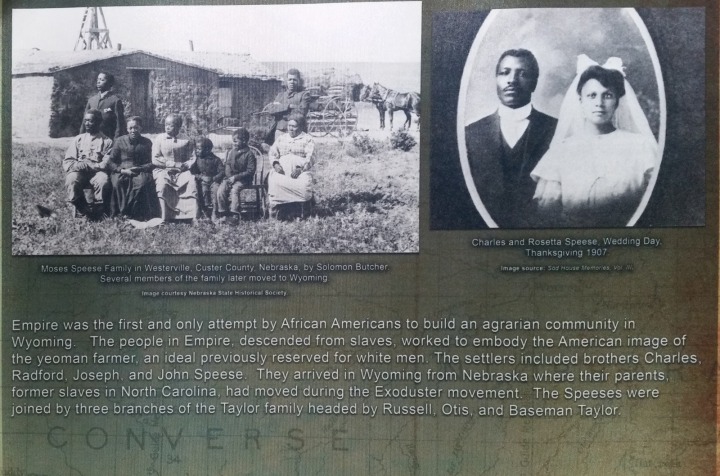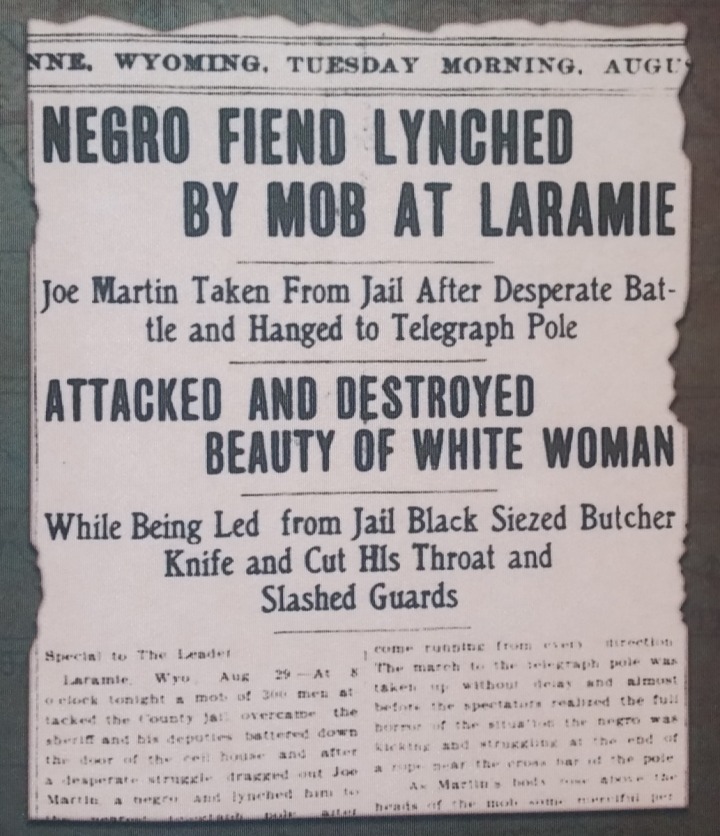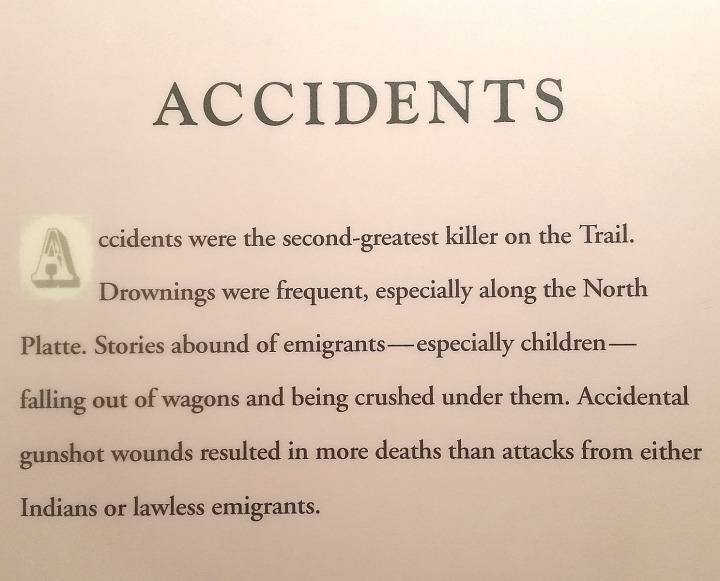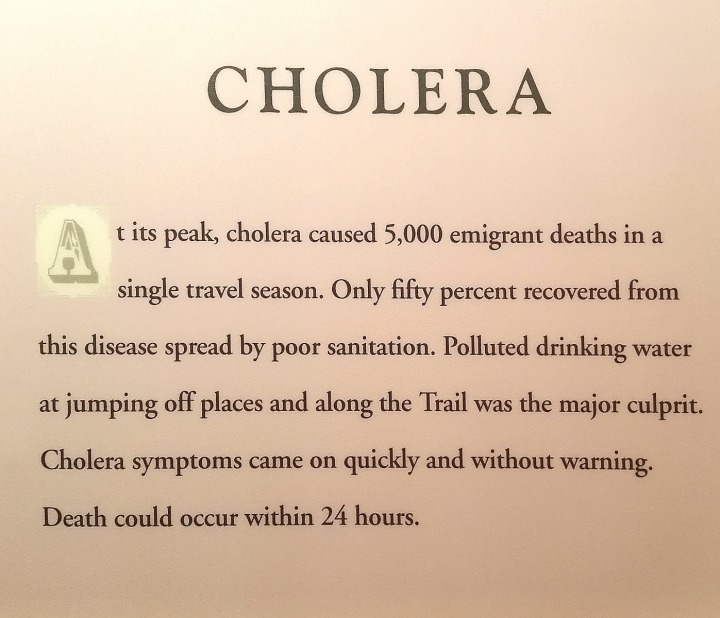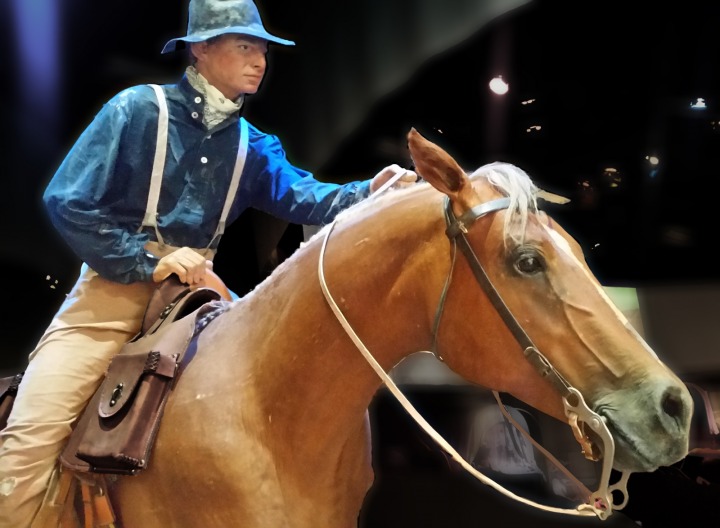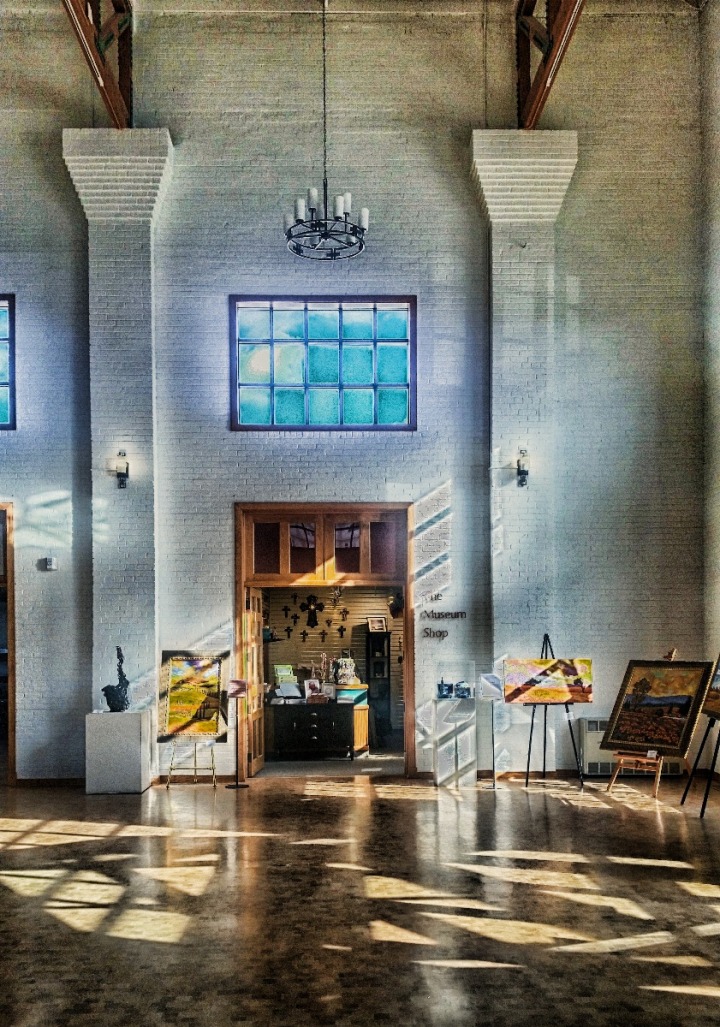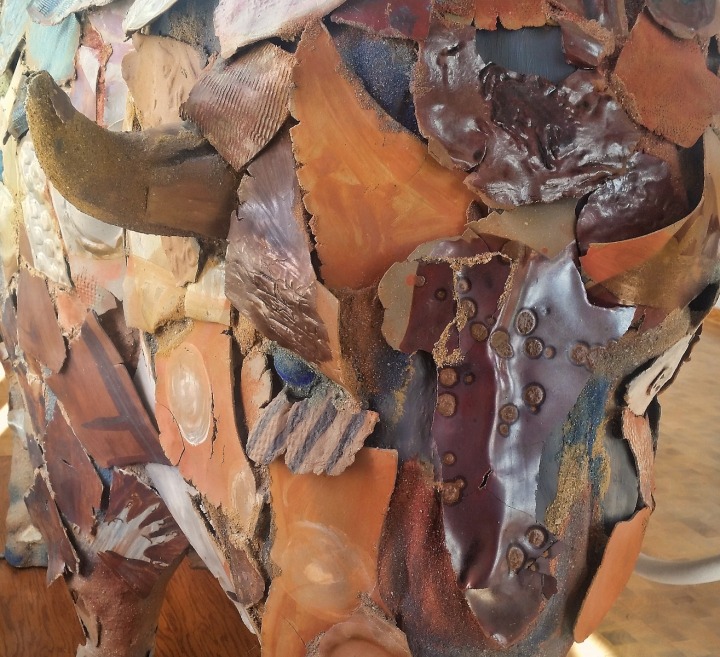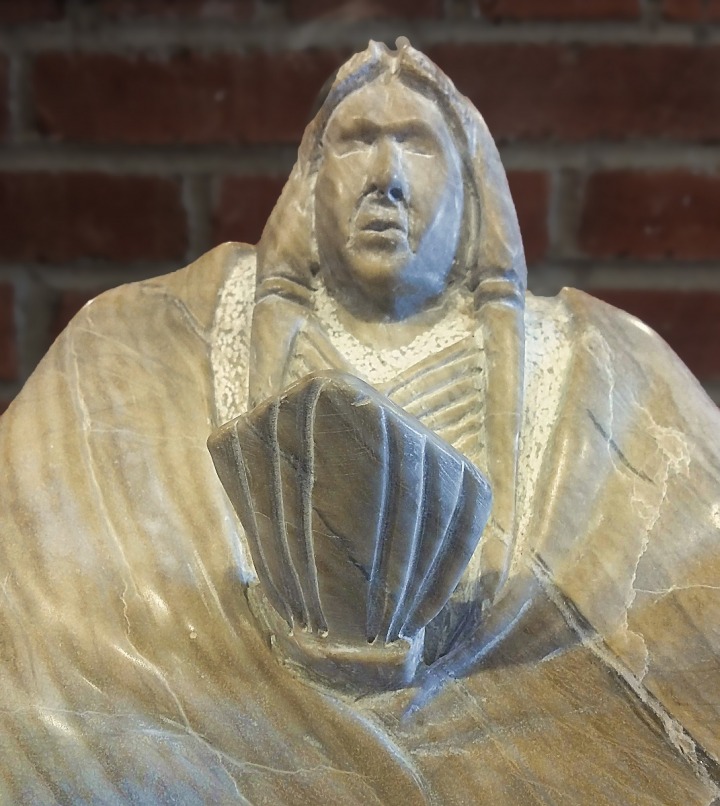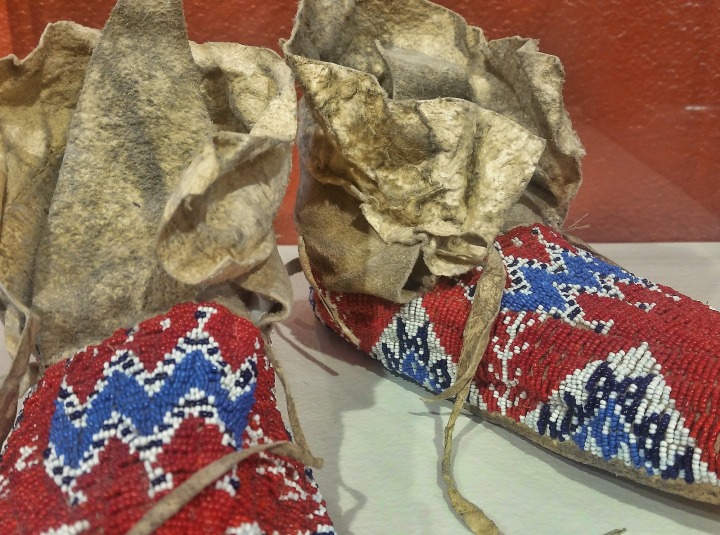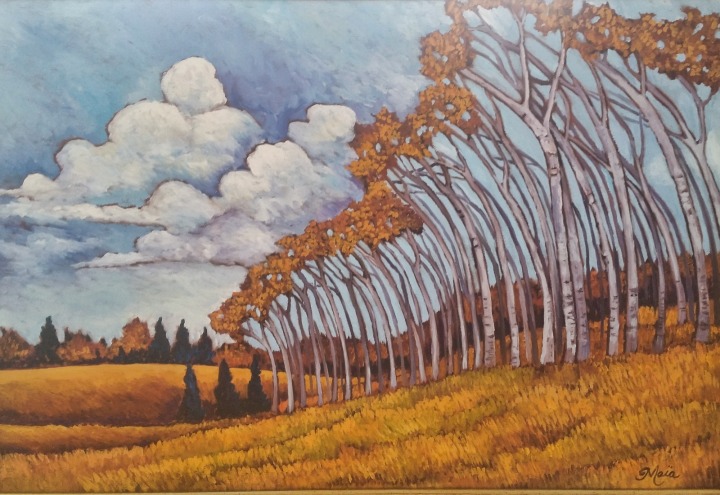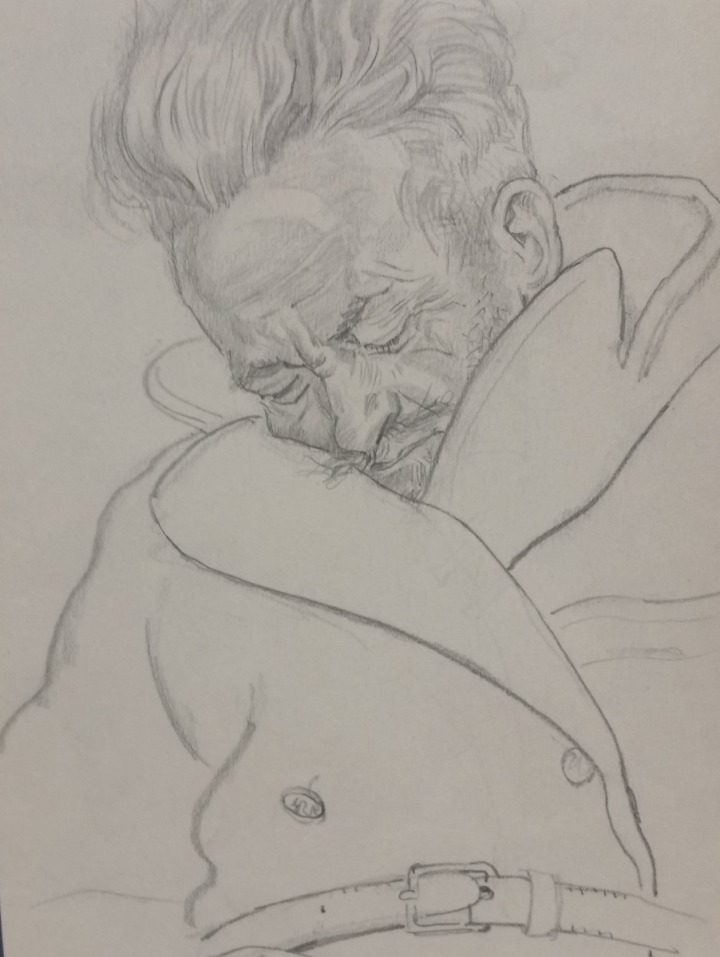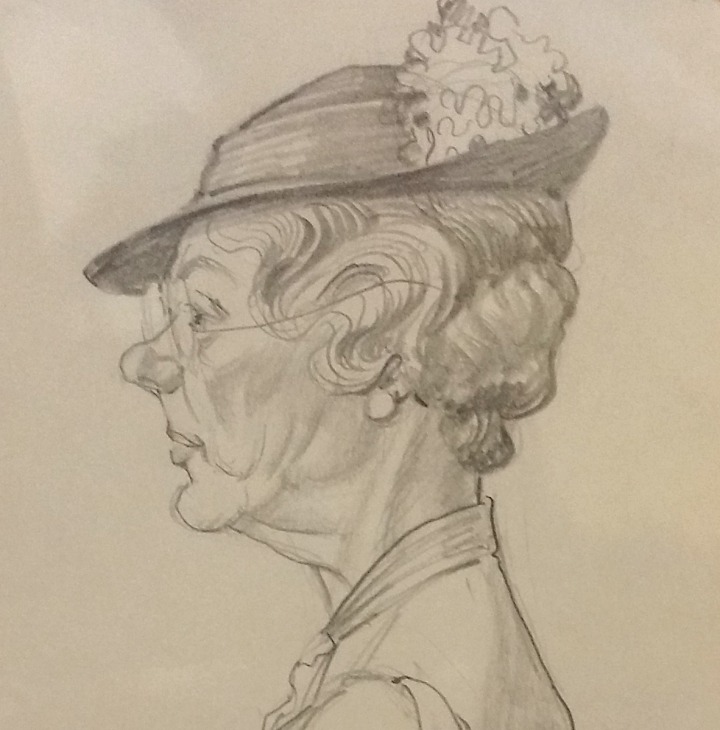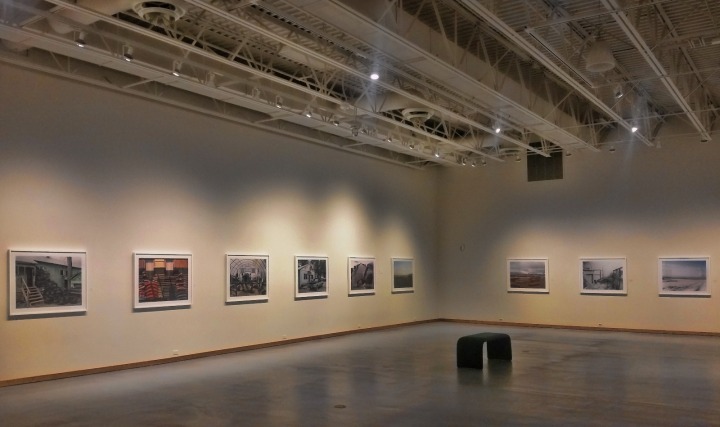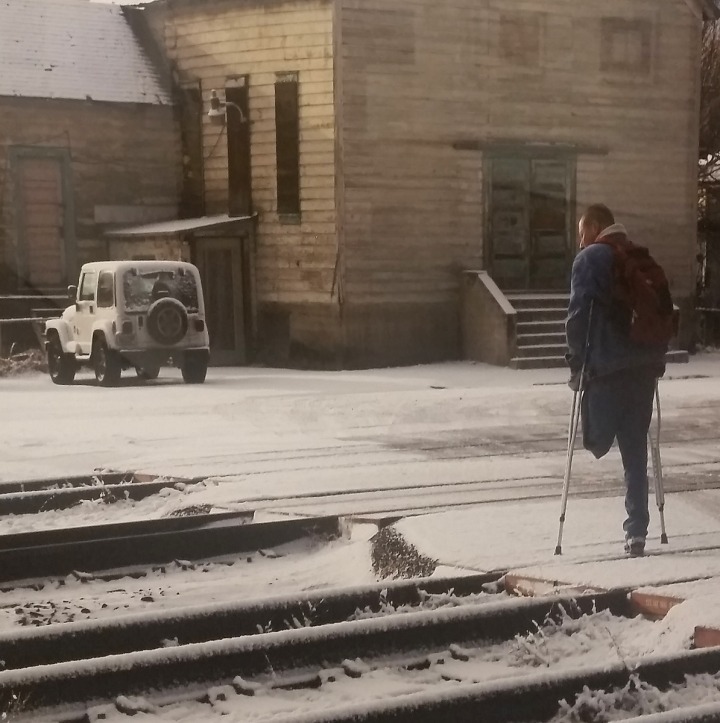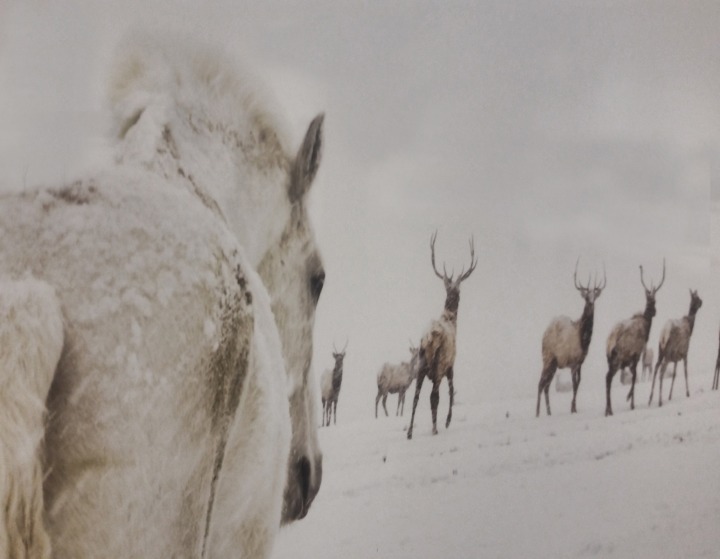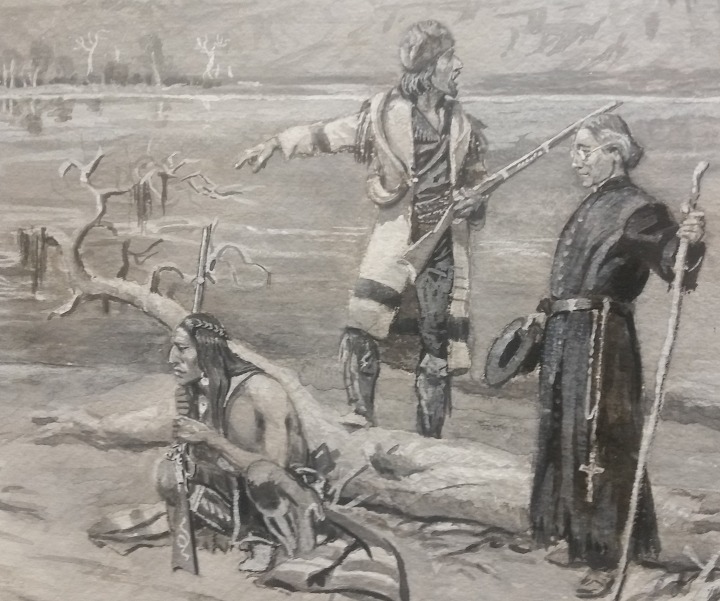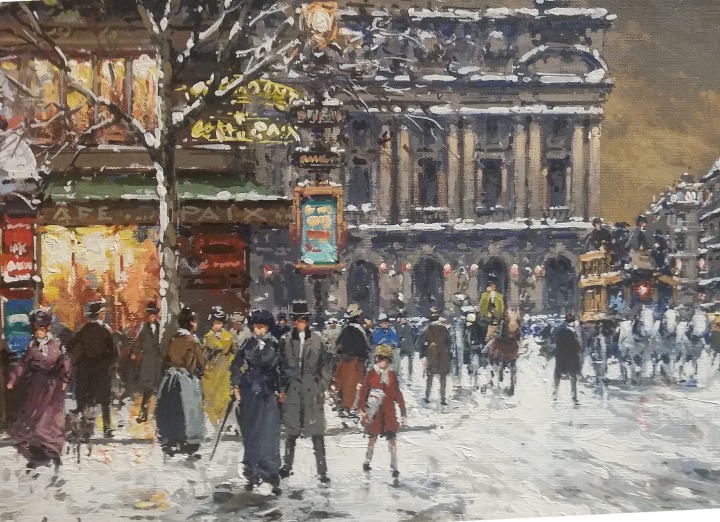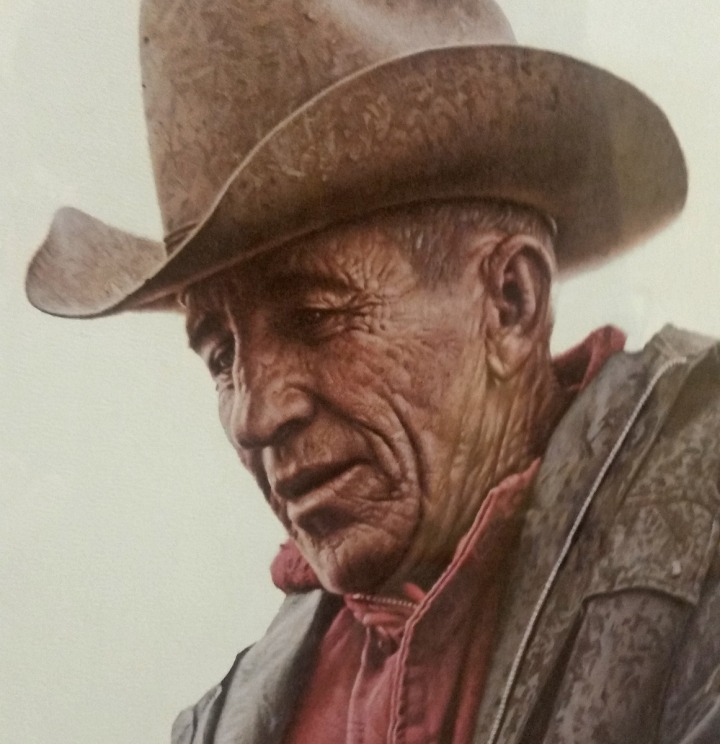Day Two -- Casper WY to Denver CO, 1 February 2018: After breakfast, we loaded up the car and set off to explore Casper.
National Historic Trails Interpretive Center -- Our first stop was The National Historic Trails Interpretive Center, an 11,000-square-foot interpretive center about several of the National Historic Trails. It's located high on a windswept hill above the North Platte River northwest of Casper, commanding views of major historic trails.When we got out of the rig, we could see the effects of yesterday's driving.From the bluff, you can look west over Casper.The area surrounding the Interpretive Center contained a lot of native plants still covered with snow lingering from yesterday's storm.The plants provided enough cover for a museum-going bunny. The heavy spring snow draped the rocks out on the surrounding prairie.At one end of the parking lot was a commemorative sculpture for the Pony Express.Nearby, beautiful little bluestem grass -- the native grass that covered millions of acres around here at one time -- bent in the prairie wind.Here and there, snow lay trapped amid the spines of the yucca plants.Spring in Casper was definitely unsprung.
Line and Space Architects designed the striking building.Blowing snow was drifting off the roof and down into the splendid entryway.These immigrant trails carried one of history's largest migrations as settlers left the East and headed to new land in the West of the United States. Permanent Exhibits include The Oregon Trail, The Mormon Pioneer Trail, The California Trail, and The Pony Express Trail.
We did a simulated Platte River crossing in a mock-up wagon with video of the trail boss leading us on; the good news is we didn't get stuck like the wagon ahead of us! This is a fascinating center with a stage coach, films about the migrations, and even a program about African-Americans who tried to settle in Wyoming after the Civil War. They were ultimately driven out in the racist 1920s, and even lynched. The dangers of the pioneer trail weren't the same as Hollywood led us all to believe.And there's a tribute inside to the Pony Express as well. The best book I've read about the Oregon Trail is The Oregon Trail, A New American Journey by Rinker Buck. In 2011, he and his brother Nick hitched a covered wagon to mules and set off to retrace what's left of the westward path traveled by thousands of 19th-century pioneers.
Lovely Lunch -- Then we took a break for lunch at Eggingtons in downtown Casper. The food was delightful as was the service. We had plenty to take along for a late dinner at our Denver hotel. Highly recommended!
Nicolaysen Art Museum -- Casper is home to a sophisticated art museum -- the Nicolaysen.The entryway had some wonderful pieces, including this bison sculpture called "Shards of Sand' by Jennifer Champlin.Also near the entrance was this sculpture in alabaster by Mike Toledo.Nearby was this lovely pair of beaded moccasins.We also passed a lovely oil painting, "Leaning Aspens" by Maia Leisz.Carl Link -- The Carl Link collection includes approximately 2,000 drawings and works on paper by the German-America artist, commercial illustrator, and art educator. Inside the Studio was a small sampling of the collection -- charming drawings of the faces of people from all walks of life.Lucas Foglia -- Photographer Lucas Foglia had a wonderful exhibit in what many would consider a palatial space for an exhibit, especially in a regional museumAs he says "In 2009, I went to Wyoming to visit a friend who had just moved there. The landscape was bigger and harsher than anywhere I had ever been, and I stayed to photograph. Beginning a new series, I wanted to see how a wild American landscape is transformed by the people who live and depend on it."And Others -- The Nicolaysen holdings are diverse. There was a wonderful sketch by Charles M. Russell depicting Father DeSmet.A French oil painter did an Impressionist-style piece of the Paris Opera.And another artist, James Bama was represented by a soulful lithograph of a working cowboy, Ken Hunder.We also enjoyed the Native American beadwork exhibit and the sculpture throughout the grounds.
Platte River Commons and Three Crowns Golf Course -- Our next stop was, of all places, a golf course. Brian had a meeting at the Casper branch office of the University of Wyoming's Wyoming Technology Business Center. The office is in the old headquarters of the former Standard Oil Refinery, built around 1913.
From the Visit Casper website: "Once upon a time, there was an oil refinery near the North Platte River just west of downtown Casper that played a major role in the world’s economy. When it closed in 1991, the site was contaminated with nearly a century’s worth of oil spillage, sludge and buried pipeline. BP-Amoco partnered with the Department of Environmental Quality and the City of Casper to clean up the property.
Today, it stands as a shining example of how recreational development and the ecosystem can work hand in hand. Contaminated soils were removed, engineered wetlands and ponds were installed to remove iron and other contaminants, and over 2,000 trees were planted to return balance to the area.Now known as the Platte River Commons, the site features the Three Crowns Golf Course, the Tate Pumphouse, the Whitewater Kayak Park, the Bart Rae Learning Circle and numerous biking and walking paths. Interpretive signage explains how the rehabilitation occurred but the best way to appreciate the transformation is to experience it for yourself.
"
There are some wonderful photos on the website -- before and after pictures. I walked the path in the howling wind; this is a very harsh climate with temperature extremes, hot dry summers, very cold winters, and constant wind. Bravo to the thriving native plants that are providing wildlife habitat.
Hauling to Denver -- And off we went down I-25 to Denver. As the early winter darkness settled in, complete with snow flurries, we resigned ourselves to four hours of freeway driving.
Text by Louise. Photos by Brian. Text and photos copyright Goin Mobyle, LLC, 2018
